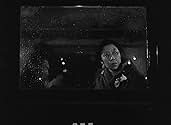NOTE IMDb
8,1/10
5,4 k
MA NOTE
Deux soeurs découvrent l'existence de leur mère longtemps disparue, mais la plus jeune ne peut pas accepter d'avoir été abandonnée quand elle était enfant.Deux soeurs découvrent l'existence de leur mère longtemps disparue, mais la plus jeune ne peut pas accepter d'avoir été abandonnée quand elle était enfant.Deux soeurs découvrent l'existence de leur mère longtemps disparue, mais la plus jeune ne peut pas accepter d'avoir été abandonnée quand elle était enfant.
Commentaire à la une
Yasujiro Ozu in my mind has got to one of the greatest directors in Japanese cinema, second only to Akira Kurosawa (also hold Hayou Miyazaki in high regard). As well as film in general, a feeling immediately felt after being blown away by 'An Autumn Afternoon' and especially 'Tokyo Story' years ago and this deep appreciation developed more when watching more of his work relatively recently. Again his work takes patience getting into it but if stuck with it's well worth it and more.
'Tokyo Twilight' is somewhat atypical Ozu. One can tell without any problem or hesitation that it's Ozu's style, which was a distinctive one and obvious in all his films regardless of the subject. The story though is a more intense one compared to what is usually seen with him and the approach is darker and bleaker than the usual gentle touch. That doesn't in any way stop it from being a wonderful film in every way, and is actually an interest point and what makes it stand out among his filmography.
It looks great, purposefully static yet never cheap, for starters, being notable for being the last Ozu made in black and white. With 1958's 'Equinox Flower' and all the films between that and 1962's 'An Autumn Afternoon', so the director's last six films, being made in colour. It is beautifully shot with distinctive techniques that Ozu used frequently, adds so much to the film's bleakness and an intimacy that allowed one to further engage with the drama. Ozu's direction has a little more tension than usual but also has the sensitivity, present in all his other major films, that few other directors before and since matched.
Kojun Saito, an Ozu regular, provides a haunting yet typically understated and sometimes nostalgic score, used intimately. The script is thoughtful and doesn't lay either the intense bleakness or poignancy on too thick. The story is deliberate but never dull, it is one of Ozu's darkest and bleakest films, with a never overplayed intensity between characters, while also very human and affecting.
Characterisation is not one-dimensional and very human, their strengths and flaws relatable and not taken to extremes in either way. Their situations also come over realistically and powerfully. The acting is great with a particularly riveting performance from Ineko Arima.
Overall, wonderful and one of Ozu's best. It is a shame though that it is not as better known as it deserves to be. 10/10
'Tokyo Twilight' is somewhat atypical Ozu. One can tell without any problem or hesitation that it's Ozu's style, which was a distinctive one and obvious in all his films regardless of the subject. The story though is a more intense one compared to what is usually seen with him and the approach is darker and bleaker than the usual gentle touch. That doesn't in any way stop it from being a wonderful film in every way, and is actually an interest point and what makes it stand out among his filmography.
It looks great, purposefully static yet never cheap, for starters, being notable for being the last Ozu made in black and white. With 1958's 'Equinox Flower' and all the films between that and 1962's 'An Autumn Afternoon', so the director's last six films, being made in colour. It is beautifully shot with distinctive techniques that Ozu used frequently, adds so much to the film's bleakness and an intimacy that allowed one to further engage with the drama. Ozu's direction has a little more tension than usual but also has the sensitivity, present in all his other major films, that few other directors before and since matched.
Kojun Saito, an Ozu regular, provides a haunting yet typically understated and sometimes nostalgic score, used intimately. The script is thoughtful and doesn't lay either the intense bleakness or poignancy on too thick. The story is deliberate but never dull, it is one of Ozu's darkest and bleakest films, with a never overplayed intensity between characters, while also very human and affecting.
Characterisation is not one-dimensional and very human, their strengths and flaws relatable and not taken to extremes in either way. Their situations also come over realistically and powerfully. The acting is great with a particularly riveting performance from Ineko Arima.
Overall, wonderful and one of Ozu's best. It is a shame though that it is not as better known as it deserves to be. 10/10
- TheLittleSongbird
- 23 avr. 2020
- Permalien
Histoire
Le saviez-vous
- AnecdotesAbortion has been legal in Japan since 1948.
- Citations
Akiko Sugiyama: I want to start over. I want to start my life over again from the beginning.
- ConnexionsFeatured in Yasujirô Ozu, le cinéaste du bonheur (2023)
Meilleurs choix
Connectez-vous pour évaluer et suivre la liste de favoris afin de recevoir des recommandations personnalisées
- How long is Tokyo Twilight?Alimenté par Alexa
Détails
- Date de sortie
- Pays d’origine
- Langue
- Aussi connu sous le nom de
- Tokyo Twilight
- Lieux de tournage
- Tokyo, Japon(setting of the action)
- Société de production
- Voir plus de crédits d'entreprise sur IMDbPro
Box-office
- Montant brut mondial
- 4 461 $US
- Durée2 heures 20 minutes
- Couleur
- Mixage
- Rapport de forme
- 1.37 : 1
Contribuer à cette page
Suggérer une modification ou ajouter du contenu manquant





































